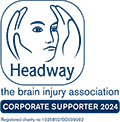This Baby Loss Awareness Week, Alice Folliss, clinical negligence specialist, reflects on a tragic case where opportunities to diagnose and treat pre-eclampsia were missed with devastating consequences, leading to our client’s baby being stillborn at 28 weeks.
Background
Our client, aged 30, sadly, suffered an incomplete miscarriage at 12 weeks. A few months later, she become pregnant for a second time. Given her previous complications, her pregnancy was classified as high risk and she was referred for consultant-led care.
At her booking appointment, she was recommended to take 75mg aspirin as two risk factors for hypertension had been identified.
At 21+5 weeks, our client underwent a fetal abnormality scan which showed nothing of concern and the baby was measuring at normal size. However, a uterine artery doppler scan (which assesses blood flow through the placenta, umbilical cord, parts of a baby's body, and the arteries that supply blood to the uterus) showed an increased resistance which should have prompted our client’s aspirin dosage to be increased from 75mg to 150mg. Unfortunately, this did not happen.
At 27+3 weeks, our client went to hospital with a headache, back pain and reduced fetal movements. She was reviewed by a midwife and her urine was tested and reported as normal, however, her blood pressure readings were very high. Despite this, no further tests were undertaken and there was no escalation to a consultant. Instead, she was told to go home and rest.
Four days later, she returned to the hospital for her 28 weeks scan. Very sadly, the ultrasound scan showed an absent heartbeat, and it was confirmed that she had suffered an intrauterine death. Her baby was delivered stillborn the following day. It was noted that our client had severe hypertension, a high level of protein in her urine and swelling of her face and limbs.
The Claim
Shoosmiths serious injury team was instructed to investigate the claim and an independent medical report was obtained from a specialist in obstetrics and fetal and maternal medicine. The expert found that there had been a failure to increase our client’s aspirin dosage from 75mg to 150mg at 21+5 weeks considering the result of the uterine doppler scan. The expert considered that our client was at a high risk of developing pre-eclampsia and, had she received the higher dose of aspirin, it was likely that any symptoms of pre-eclampsia would have developed later during her pregnancy and would have been milder. The stillbirth would not have happened, and our client’s baby would have been born alive.
The expert identified a further failure to investigate and treat our client’s hypertension at 27+3 weeks when she attended the hospital with headache, back pain and reduced fetal movements. In our expert’s view, a thorough examination would have led to diagnosis of pre-eclampsia and our client would have received treatment and intense monitoring. Had she received the treatment and monitoring, the expert considered that her symptoms would have been controlled, and her pregnancy would have been prolonged past 28 weeks, resulting in the baby being born alive.
Whilst it was devastating for our client to learn of the multiple failures, and that the stillbirth could have been avoided had she received the correct medical treatment, she and her family were relieved to finally have a full understanding of what happened.
Outcome
After some initial resistance, the NHS Trust ultimately accepted liability for what happened, and we were able to reach an out-of-court settlement on behalf of our client.
Alice Folliss said about the case: ‘In tragic cases of baby loss such as these, the law often offers little recourse. I am, however, pleased that we were able to successfully resolve this matter for our client and her family and they are now finally able to obtain some closure.’
Speaking of Alice, our client said: “I would just like to say thank you for all your hard work and it has been a pleasure working with you.”
For further information and support visit the Action on Pre-eclampsia website.
Disclaimer
This information is for educational purposes only and does not constitute legal advice. It is recommended that specific professional advice is sought before acting on any of the information given. © Shoosmiths LLP 2024
















